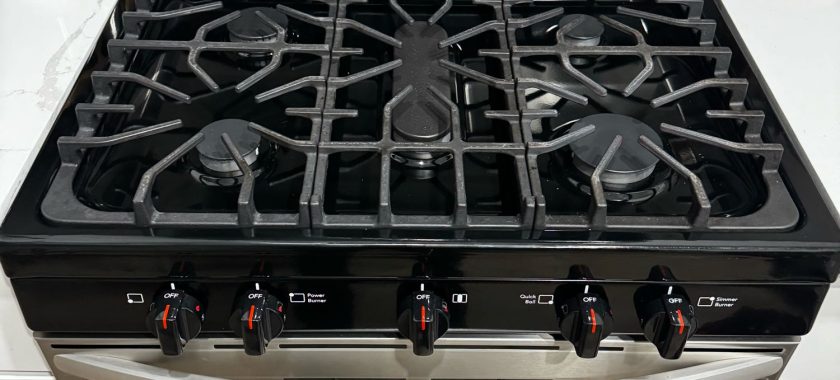Hobs are an essential component of any modern kitchen, making cooking more efficient and convenient. However, their performance and longevity largely depend on proper ventilation. Poor ventilation can cause a range of issues, from inefficiency and overheating to long-term appliance damage and health risks. Understanding these effects is crucial to maintaining a well-functioning kitchen and ensuring your hob operates safely and effectively.
1. Heat Accumulation and Overheating
One of the most immediate effects of poor ventilation is excessive heat buildup around the hob. When there is insufficient airflow, the heat generated during cooking cannot dissipate properly. This can cause:
- Reduced efficiency – Your hob may take longer to cook food as the excess heat interferes with the appliance’s ability to regulate temperature.
- Overheating of components – Electrical and electronic components within the hob can become too hot, potentially leading to premature wear and malfunctions.
- Increased energy consumption – The hob may need to work harder to maintain the desired temperature, leading to higher energy bills.
2. Shortened Lifespan of the Hob
Proper ventilation helps keep your hob’s internal components cool. Without it, the continued exposure to high temperatures can cause critical parts, such as control boards, ignition systems, and wiring, to degrade faster than they should. Over time, this can lead to costly repairs or the need for a complete replacement much sooner than expected.
3. Gas Leak and Carbon Monoxide Buildup
For gas hobs, poor ventilation poses an even greater risk. If gas does not burn efficiently due to lack of airflow, it can result in incomplete combustion. This can lead to:
- Increased carbon monoxide levels – Carbon monoxide (CO) is a dangerous, odorless gas that can build up in enclosed spaces. High concentrations can cause headaches, dizziness, and even life-threatening poisoning.
- Higher risk of gas leaks – Inadequate ventilation can cause gas to accumulate, increasing the risk of fire or explosion if ignited.
Ensuring proper ventilation is vital for both safety and energy efficiency.
4. Excessive Moisture and Grease Accumulation
Poor ventilation traps steam, grease, and other cooking byproducts in the kitchen. Over time, this can lead to:
- Grease buildup on kitchen surfaces – Without a proper venting system, grease particles settle on cabinets, walls, and ceilings, making cleaning more difficult and creating an unhygienic cooking environment.
- Mold and mildew growth – The trapped moisture can create an ideal environment for mold and mildew, which can damage surfaces and pose health risks.
- Unpleasant odors – Cooking smells linger longer, making your kitchen and home feel stuffy and uncomfortable.
5. Reduced Air Quality and Health Risks
Inadequate ventilation not only affects your hob but also your overall indoor air quality. Poor airflow can cause a buildup of pollutants, leading to:
- Respiratory issues – Prolonged exposure to airborne grease, smoke, and combustion fumes can irritate the respiratory system, particularly for individuals with asthma or allergies.
- Eye and skin irritation – The airborne particles from cooking can cause discomfort, especially in poorly ventilated areas.
Improving ventilation ensures that your kitchen remains a safe and healthy space for cooking.
How to Improve Hob Ventilation
To prevent these issues, it’s essential to ensure your kitchen has proper ventilation. Here are some steps you can take:
- Install a high-quality range hood – A properly functioning exhaust hood helps remove heat, steam, and smoke, preventing buildup.
- Ensure your ventilation system is clean and unobstructed – Regularly cleaning the filters and ducts of your range hood can help maintain airflow efficiency.
- Use external ventilation if possible – If your kitchen allows, venting your range hood outside instead of using a recirculating model can provide better airflow.
- Keep windows open while cooking – Even a small opening can improve airflow and reduce moisture buildup.
When to Call a Professional
If you notice persistent issues such as excessive heat, lingering odors, grease buildup, or gas leaks, it’s crucial to get your ventilation system inspected and repaired. A professional can assess whether your hob and ventilation system are functioning properly and make necessary adjustments or repairs.
At Chula Vista Appliance Repair Company, we specialize in diagnosing and fixing ventilation issues that affect your hob’s performance. Whether you need a repair, maintenance, or a professional assessment, our team is ready to help.
Contact us today to schedule a service appointment and ensure your hob operates safely and efficiently!
Contact us
(619) 880-5508


